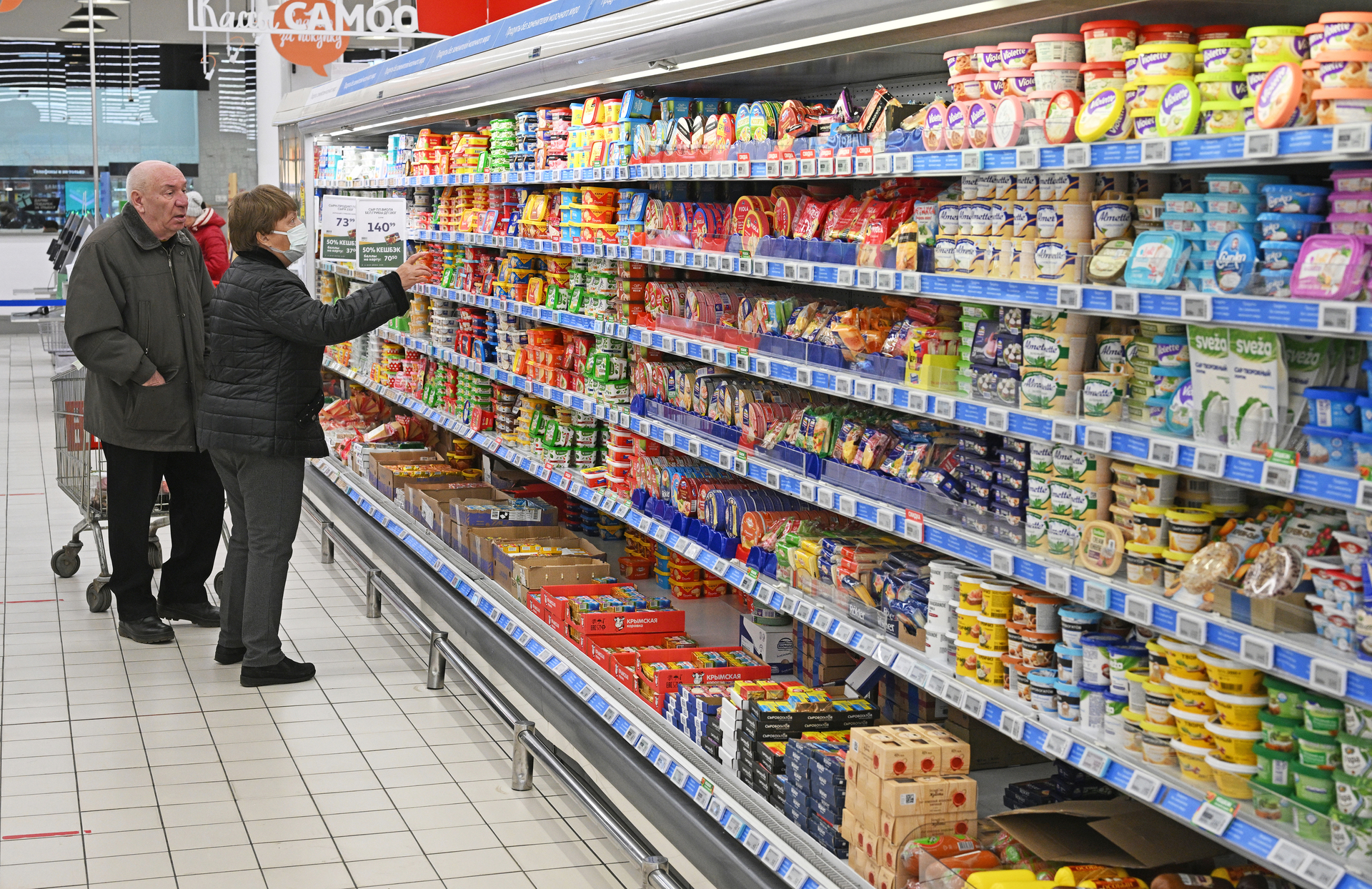With the introduction of Western sanctions against Russia and the withdrawal of many foreign companies from the Russian Federation, the demand for a number of domestically produced products has noticeably increased in the country.
In particular, we are talking about confectionery and alcoholic beverages.
Experts from the fiscal data operator (OFD) of the Kontur.Market service told RT about this.
According to the company, from March 1 to March 15, the volume of Russian beer sales increased by 42% in rubles and by 9% in tickets compared to the same period in February.
At the same time, foreign intoxicated drinks showed less confident growth - by 9 and 3%, respectively.
Strong alcohol demonstrates similar dynamics.
If sales of domestic products increased by 28% in rubles and by 19% in checks, then foreign ones - only by 20% and 12%, respectively.
The rapid growth of indicators is also observed in the segment of chocolate products.
The volume of sales of Russian sweets increased by 24% in rubles and 12% in the number of checks.
However, as analysts note, foreign brands are still showing higher rates - 34 and 16%, respectively.
“Western sanctions have become a catalyst for work on import substitution in all industries, including food.
Domestic manufacturers are increasing the pace of deliveries, developing new product lines.
Although at the same time, many foreign brands are still selling well and in large quantities, ”Mikhail Dobrovolsky, head of the strategic direction for business automation at SKB Kontur, told RT.
By mid-March, sales were up in almost all product categories, he said.
This was largely due to the fears of Russians about rising prices and the desire of many citizens to buy for future use, the specialist added.
RIA News
© Vladimir Astapkovich
The Western sanctions rhetoric against Moscow that has continued since the end of February has led to a temporary but significant depreciation of the ruble in the first half of March.
In addition to increasing business costs, this situation caused an emotional reaction from ordinary consumers, and Russians began to massively buy food and non-food products.
At the same time, according to government estimates, there are no prerequisites for a food shortage in the country today.
Moreover, due to the high volumes of food production, the country has the opportunity to ensure domestic prices are lower than on the world market.
This was previously stated by Vladimir Putin.
“Food self-sufficiency is Russia's real competitive advantage, and it should work in the interests of our citizens.
We must protect them from fluctuations in the market, from price fluctuations in the global food market,” the president emphasized at a meeting on the development of the agro-industrial complex on April 5.
In recent years, Russia's dependence on imported food products has noticeably decreased, and today the country is almost completely self-sufficient in many types of food.
This was told to RT by the head of the analytical department of AMarkets Artyom Deev.
According to him, at the moment the smallest share of imports is noted in such categories as flour, cereals, pork, poultry meat, sausages, fish and seafood, as well as alcoholic and non-alcoholic products.
At the same time, the departure of foreign business from Russia may be in the hands of domestic producers, the expert believes.
“Against the backdrop of sanctions, our companies are able to significantly increase production with appropriate support measures from the government.
After all, earlier one of the limiters to this was the high proportion of foreign companies in the country.
Now there are prospects to further increase our presence in the domestic market for many sectors of the manufacturing and food industries,” the specialist noted.
As Mark Goykhman, chief analyst at TeleTrade Group of Companies, told RT, in market conditions, a reduction in production by one enterprise is quickly replaced by competitors.
At the same time, the specialist recalled the decision of the Russian authorities to introduce external management for companies leaving Russia in order to preserve jobs and the activities of enterprises.
“Food self-sufficiency and the localization of food production will definitely increase in the next five years.
It is very important for Russia to take steps towards import substitution in the production of seeds, breeding stock, eggs and other critically important agricultural products.
The correctness of such a strategy will become more and more obvious as the food crisis in the world develops, ”the expert believes.

